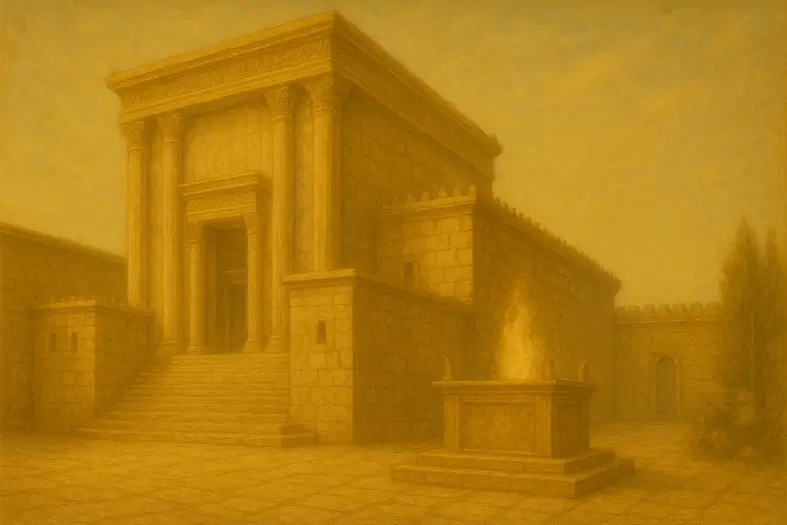


On each Rosh Chodesh, Israel must bring additional burnt offerings (musafim) and a sin offering, alongside the daily tamid.
This mitzvah commands the bringing of korbanot musaf on Rosh Chodesh, marking the sanctification of each new month. The offerings include two bulls, one ram, and seven lambs as olah (burnt offerings), with their associated meal and drink offerings, and one goat as a chatat (sin offering).
Rosh Chodesh sacrifices marked the renewal of time, reminding Israel that the calendar is sanctified by Hashem and entrusted to His people. Rambam codifies these musafim as part of the sanctification of months, binding celestial cycles to Israel’s service. The Talmud (Chullin 60b) interprets the goat offering as an atonement for the “diminution of the moon,” symbolizing cosmic harmony restored through Israel’s service. Sefer HaChinuch explains that these offerings direct Israel to recognize Hashem as the Creator who renews time and governs all cycles of existence.
Commentary & Classical Explanation:
Contrast with Shabbat Musaf (Mitzvah 380):


Concerns the Beit HaMikdash, korbanot (offerings), and priestly service.
Represents the concept of spiritual intentionality, purity, and sanctity—set apart for a higher purpose.
Represents Emunah—the deep, inner trust in Hashem’s presence, oneness, and constant involvement in our lives. This badge symbolizes a heartfelt connection to G-d, rooted in belief even when we cannot see. It is the emotional and spiritual core of many mitzvot.
Mitzvot that strengthen communal life — showing up, participating, supporting, and belonging. Community is where holiness is shared, prayers are multiplied, and responsibility becomes collective.
Signifies awe and reverence toward Hashem—living with awareness of His greatness and presence.
Mitzvot that define and deepen the relationship between a person and their Creator. These include commandments involving belief, prayer, Shabbat, festivals, sacrifices, and personal holiness — expressions of devotion rooted in divine connection.

Dive into mitzvos, prayer, and Torah study—each section curated to help you learn, reflect, and live with intention. New insights are added regularly, creating an evolving space for spiritual growth.

Explore the 613 mitzvos and uncover the meaning behind each one. Discover practical ways to integrate them into your daily life with insights, sources, and guided reflection.

Learn the structure, depth, and spiritual intent behind Jewish prayer. Dive into morning blessings, Shema, Amidah, and more—with tools to enrich your daily connection.

Each week’s parsha offers timeless wisdom and modern relevance. Explore summaries, key themes, and mitzvah connections to deepen your understanding of the Torah cycle.